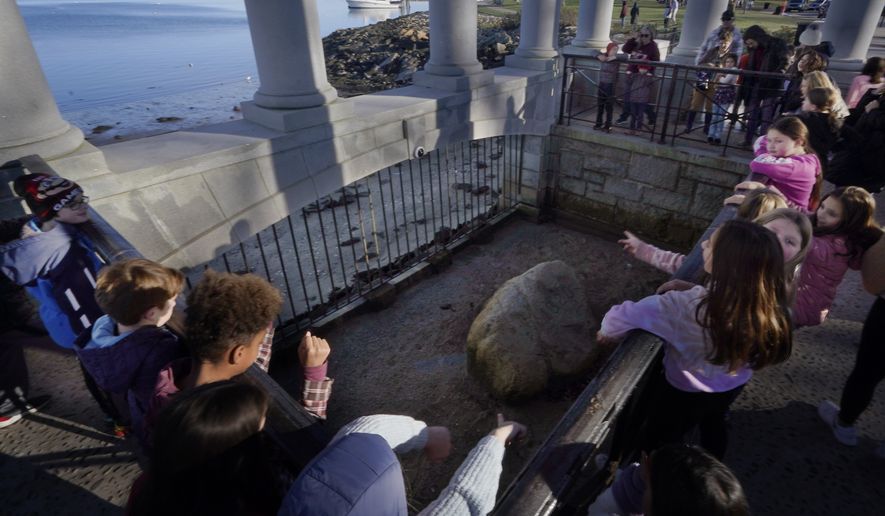Teenagers may enjoy being out of school to eat turkey on Thursday, but don’t expect them to be able to tell you if Thanksgiving is a federal holiday.
Sixty-four percent of middle and high school students failed a basic Thanksgiving knowledge quiz, getting at least four out of eight true-or-false questions wrong, the learning app Brainly reported.
And 89% of the 569 adolescents who completed the quiz about Thanksgiving’s origins failed to earn higher than a “C” grade.
“These findings show a need for more education surrounding the Thanksgiving holiday and traditions,” said Patrick Quinn, a Brainly parenting expert and former middle school teacher.
In the quiz, 66% of students did not know Thanksgiving is a federal holiday. And 74% did not know George Washington first proclaimed it.
Another 39% didn’t know that Pilgrims and American Indians celebrated the first Thanksgiving together and 36% didn’t know where it happened. The quiz also found that 59% didn’t know there was no turkey at the first meal.
The quiz follows holiday surveys that Brainly conducted among the same grade levels this year, fueling debate among historians about a decline in U.S. civics knowledge.
Those surveys found that only 59.5% of middle and high school students said they had learned about Independence Day in school and more than 30% did not know, heading into Flag Day, that the 50 stars on the U.S. flag represent the 50 states.
“It confirms my 44 years of teaching experience that 30% of undergraduates could not pass the U.S. citizenship test. They don’t think anything happened before they were born,” said Joseph Ellis, a Pulitzer Prize-winning constitutional historian.
College enrollments for history majors have plummeted nationwide as STEM (science, technology, engineering, mathematics) majors grow in popularity and more universities abolish core liberal arts requirements, he noted.
“We’re fighting a losing battle here, but it’s a battle worth fighting. Cicero once said that a person who does not understand the past shall forever remain a child,” Mr. Ellis said.
Others said the quiz is irrelevant with regard to the origins of Thanksgiving in the oppression of Indigenous peoples.
“Holding up a shared meal as a symbol of Native American and colonial relations sugarcoats what was fundamentally a violent conquest,” said David J. Silverman, a colonial historian specializing in race and Indigenous peoples. “A lot of Americans think history is just a series of facts to memorize, but a history education is an ability to narrate a story about the past based on evidence.”
A professor at George Washington University, Mr. Silverman called the story of Thanksgiving “an opportunity to explore the history of national myth making.”
American history classes have increasingly pivoted from the facts covered in the Brainly quiz as colleges replace or supplement Thanksgiving celebrations with Native American Heritage Month events. For example, California State University in San Bernardino on Friday held an inaugural “Thankstaking” gathering to discuss how traditional Thanksgiving celebrations produce “misinformation” about Native peoples.
Conservative scholars argue that liberal reinterpretations of history have eroded basic knowledge about America’s founding holidays and institutions.
In September, an annual Constitution Day survey from the Annenberg Public Policy Center found that fewer than half of Americans could name the three branches of the federal government (executive, legislative and judicial), a significant drop from last year.
Such results show the effects of historians teaching a “disdainful view” of American history as a narrative of colonial oppression, said Peter Wood, president of the conservative National Association of Scholars.
“The result of this maleducation is that many students are ignorant about the events that lie behind the national holiday, and many are even hostile to the precedent for self-government, religious tolerance and amicable relations between Europeans and Native Americans that was set by the founders of Plymouth,” said Mr. Wood, a former associate provost at Boston University.
• Sean Salai can be reached at ssalai@washingtontimes.com.




Please read our comment policy before commenting.